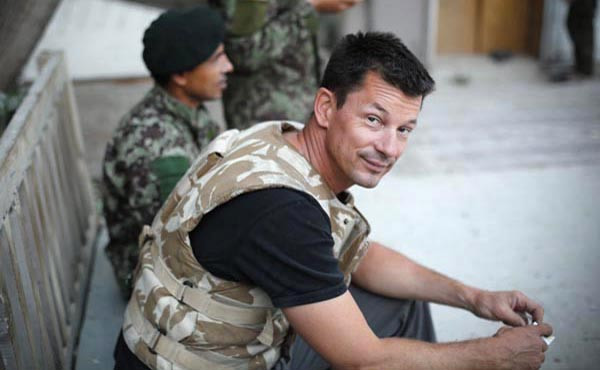John Cantlie Video: Who is Photojournalist Held by Isis?

John Cantlie, who has appeared on an Isis (known as Islamic State) video pledging to expose the truth behind IS, is a British freelance photojournalist who has worked for The Sunday Times and The Sunday Telegraph, as well as the BBC.
He was held hostage along with Dutchman Jeroen Oerlemans and their guide in July 2012 by Islamist militants in northern Syria and rescued by a Free Syrian Army group a week after.
Cantlie later recounted his ordeal, saying as many as 15 out of 30 of the jihadists holding them appeared to be British. Oerlemans then said: "The British guys were the most vindictive of them all."
The journalist said they were constantly threatened with beheading. They were subjected to mock executions and beaten.
"Those b******s constantly threatened us with death, always cocking their weapons, getting us to stand as though we were being led out for execution, sharpening knives for a jihadist beheading and generally playing with our minds," Cantlie wrote on his website after the release, according to the Guardian.
"When you're constantly handcuffed and blindfolded in a stinking tent in 35 degrees and covered in flies, the imagination can run riot."
Both were shot and wounded during an escape attempt gone wrong.
"My feet, cut pretty badly when we attempted to escape over granite boulders and shrubs, are healing quickly, while the left hand is still problematic," Cantlie wrote. "My ulnar nerve was damaged and I've lost feeling in about 30% of my left hand."
After the incident, the pair were taken back to the camp where a fighter who claimed to be an NHS doctor treated their wounds.
The doctor was later identified as 27-year-old Shajul Islam, from east London, and he was arrested while flying into Heathrow Airport with his wife and baby in October 2012. Islam was charged with false imprisonment and accused of being a jihadist with international connections but his case was dropped in November 2013 because both witnesses were unable to call.
Prosecutor Mark Dennis told the court the trial was frustrated from the point of view of the prosecution by the fact that the two victims in the case could not be summoned as witnesses.
© Copyright IBTimes 2025. All rights reserved.






















